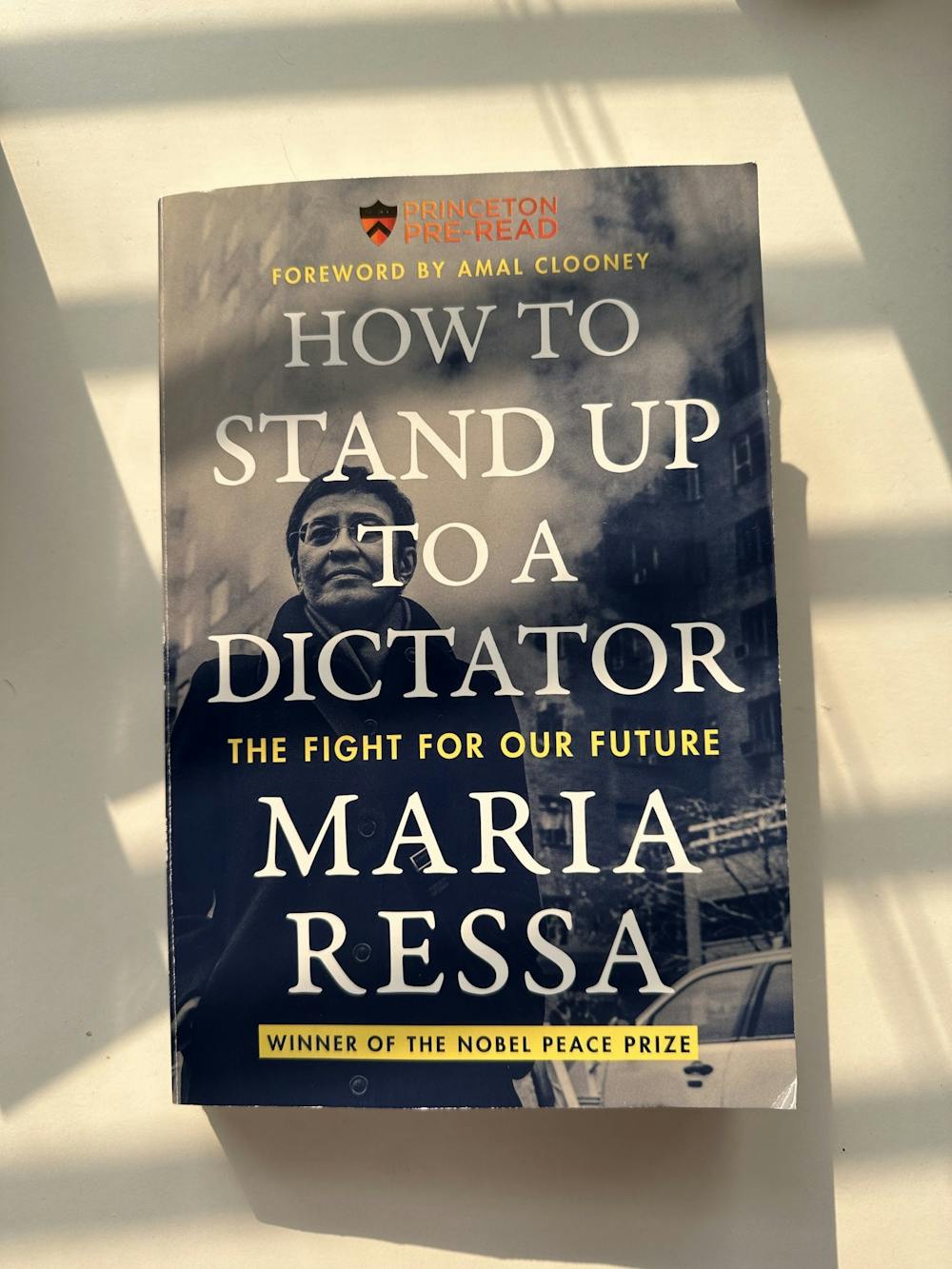I was disappointed to be disappointed by this year's Pre-read, “How to Stand Up to a Dictator: The Fight for our Future,” by Maria Ressa ‘86. The book has its merits — Ressa, an investigative journalist targeted by the Philippines’ illiberal government, demonstrates her character, intelligence, and skill throughout the memoir-manifesto. A co-founder of the digital news company Rappler and a Nobel Peace Prize recipient, she is an excellent and courageous journalist and a fierce voice for democracy and against misinformation. And yet, I found her book profoundly unfulfilling.
It feels cruel to say this, especially because the book is mostly this remarkable journalist's autobiography. The adversity she faces and the courage she displays in her struggle against autocracy are evident. Although I admire Ressa as a person, I cannot set aside her book’s ambiguous portrayal of activism or the effects this portrayal might have on Princeton students.
Unfortunately, the book’s narrative is one of ineffective activism, which fails to become greater than the sum of its parts. Ressa’s efforts are passionate and virtuous, but ultimately read as tragedies. Even when Ressa’s activism is unsuccessful, it is still framed as powerful. This stance clouds activism’s meaning and dilutes its significance.
In “How to Stand Up to a Dictator,” Ressa shares her tactics: hashtag campaigns, think tank studies, fundraising, meetings with Facebook, participation in conferences, online workshops, international coalitions, speeches, her ‘Ten-Point Plan to Address the Information Crisis.’ However, while Ressa is rightfully proud of her efforts, they weren’t successful in the Philippines; although they maintained her relevance, they didn’t propel her to victory. Activism is more than the execution of laudable, yet ineffective, processes. At best, this presents activism as lofty initiatives exchanged in a bubble of do-gooders. At worst, the reader will take away that activism does not work — which is tragic, because little else can resist tyranny; to quote Frederick Douglass, “Power concedes nothing without demand.”
Ressa writes, “I want to make sure that I have done all I can. We will not duck. We will not hide.” But activism does not consist of all-out do-gooding; instead, it should be practiced as specific actions targeted to affect specific change. Ressa often frames activism normatively rather than substantively. To be clear, activism should embody moral goods. But, while these goods create a framework for action, their promotion is not the end itself. In her narrative, Ressa frequently refers back to the lessons ingrained in her worldview during her childhood and adolescence, such as embracing fear, standing up to bullies. Of Princeton, she writes that “the strict code of honor simplified the world for me and helped me make quick decisions.” Adherence to these principles validate her actions throughout her narrative, such as when she refuses to jump bail while abroad in order to “not become a criminal to fight a criminal.” However, Ressa’s emphasis on moral victories rather than tangible ones causes the virtue inherent in activism to risk being mistaken for its center.
Painfully, a passage about Ressa’s reaction to her friend Twink’s battle with cancer describes the attitude that I take issue with in the context of activism: “Despite all that, I assumed that her strength of will would ultimately prevail over the disease. I suppose that’s a fundamental belief I should reexamine: that you can shape the world you live in with your mind.”
Ressa makes the same assumption with the disease that pervades her politics: that the laws which are displeasing to an autocrat, namely freedom of the press and the right to a fair trial, will ultimately prevail to enshrine democracy in perpetuity. But this blind faith in inevitable progress lulls people into a false sense of security. This is the essential mistake: Activists are not the prophets of a natural direction, of a human flourishing that evolves as inexorably as gravity falls. Activism implies the imperative of active efforts to continuously construct a more just world, so it’s critical that we do not take neither its efforts nor its successes for granted.
Commending Ressa’s qualities and recognizing the importance of her fight can and must co-exist with a broader critique of the theme of activism — especially on Princeton’s campus, which suffers from a dearth of effective activism. While Ressa has a valuable story to tell, a Pre-read that conflates ineffective and meaningful activism risks disillusioning its readers.

Ressa tells us how to stand up to a dictator. But how do you win against one?
Jordan Fraser Angel is a first-year intending to major in Politics. She can be reached at jordan.angel@princeton.edu.









